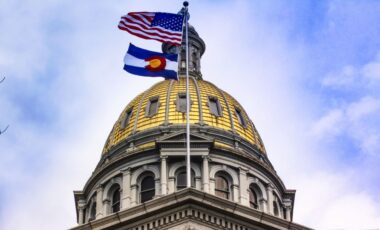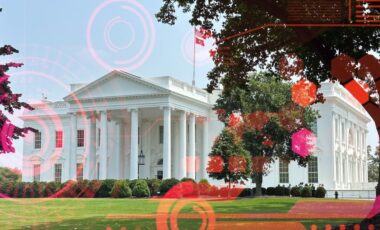Posts by Jake Parker, Senior Director of Government Relations, Security Industry Association
Groundbreaking Texas AI Law Also Brings Needed Clarity on Use of Biometric Technologies for Security
On June 22, 2025, Texas Gov. Greg Abbott signed into law H.B. 149, the Texas Responsible Artificial Intelligence Governance Act (TRIAGA). Despite a hodgepodge of state measures aimed at regulating AI introduced across dozens of states in 2024 and 2025, Texas is only the second state after Colorado to enact an AI measure with broad…
Keep Reading »Lawmakers, Industry Advocates Avert Misguided Ban on Keys in Minnesota
On June 10, 2025, the Minnesota House and Senate passed HF 4, the state’s annual budget measure, which not only averted a government shutdown but also reversed an environmental law provision banning the sale of metal keys – in a triumph for common sense. The move came as a relief across affected industries, not just…
Keep Reading »New Colorado Bill Approves Use of Facial Recognition Technology for School Security Despite Other Restrictions
On April 4, 2025, SB25-143 cleared the Colorado General Assembly; the bill will now be sent to Gov. Jared Polis for his signature or veto. For certain applications, the measure conditionally lifts an existing moratorium on new contracting for facial recognition technology by Colorado public schools in place since 2022, while extending the prohibition…
Keep Reading »SIA Government Relations Update: What the Federal Grants Pause Means for the Security Industry
Updated Jan. 30, 2025 Update: Governmentwide Pause on Federal Grants Rescinded, But “Freeze” Remains for Some Programs On Jan. 29, 2025, the Office of Management and Budget (OMB) office rescinded its Jan. 27 memo ordering a pause in federal grants until agencies can review programs and projects for consistency with President Trump’s executive orders (EOs)…
Keep Reading »Nation’s Strongest Regulations for Law Enforcement Use of Facial Recognition Technology Go Into Effect: Key Provisions of Maryland’s New Law
The only U.S. state to pass legislation specifically addressing facial recognition technology this year, Maryland’s new law was signed by Gov. Wes Moore on May 26, 2024, and went into effect on Oct. 1. The measure establishes uniform statewide standards applicable to any state or local agency that uses facial recognition technology in criminal investigations.…
Keep Reading »Update on California AI Measures After Conclusion of the 2024 Regular Legislative Session
Sept. 30, 2024, looms as the deadline for California Gov. Gavin Newsom to sign or veto any bills cleared by the legislature and sent to the governor’s office by the end of its regular session. There were some surprises on AI legislation with implications for discussions across the nation on AI policy, with key outcomes…
Keep Reading »California Bills Would Impact Artificial Intelligence, Shape Security
Movement on AI, Other Measures in California’s 2024 Legislative Session As California’s legislature enters the last days of its legislative session that ends Aug. 31, 2024, it’s do-or-die time for key legislation on artificial intelligence (AI) that has been discussed and debated over for months. The Senate and Assembly Appropriations Committees faced an Aug. 15…
Keep Reading »Key Dismissal of BIPA Case Upheld in Federal Court: What SIA Members Need to Know
On June 17, 2024, the U.S. Court of Appeals for the Ninth Circuit affirmed the district court’s judgment concerning the plaintiff’s appeal in Zellmer vs. Meta Platforms, dismissing the case filed over alleged violations of Illinois’ Biometric Information Protection Act (BIPA). Notably, the Ninth Circuit rejected the original reasoning used by the district court, which…
Keep Reading »Latest Federal Data Privacy Proposal Stalls in Committee: What It Means for the Security Industry
Meanwhile, More States Adopt Consensus Model On June 27, 2024, the House Energy and Commerce Committee canceled its planned markup of the American Privacy Rights Act (APRA), following pushback from a wide spectrum of stakeholders on the latest draft released just days prior, including groups that had been supportive of previous iterations. Even more significantly,…
Keep Reading »What Security Companies Need to Know About the New OMB Guidance on Use of AI by Federal Agencies
On March 28, 2024, the White House Office of Management and Budget (OMB) issued the final version of its memorandum (M-24-10) instructing federal agencies regarding implementation of the Biden administration’s Executive Order on the Safe, Secure and Trustworthy Development and Use of Artificial Intelligence (AI). Under M-24-20, agencies are instructed to designate chief AI officers…
Keep Reading »









